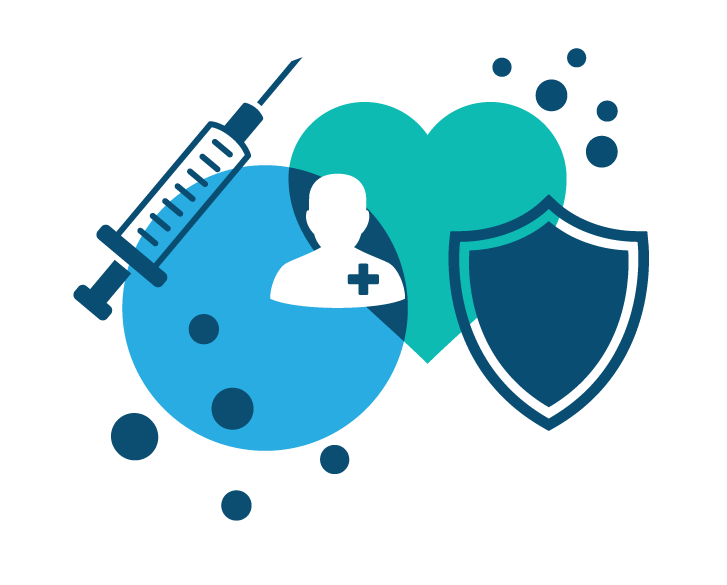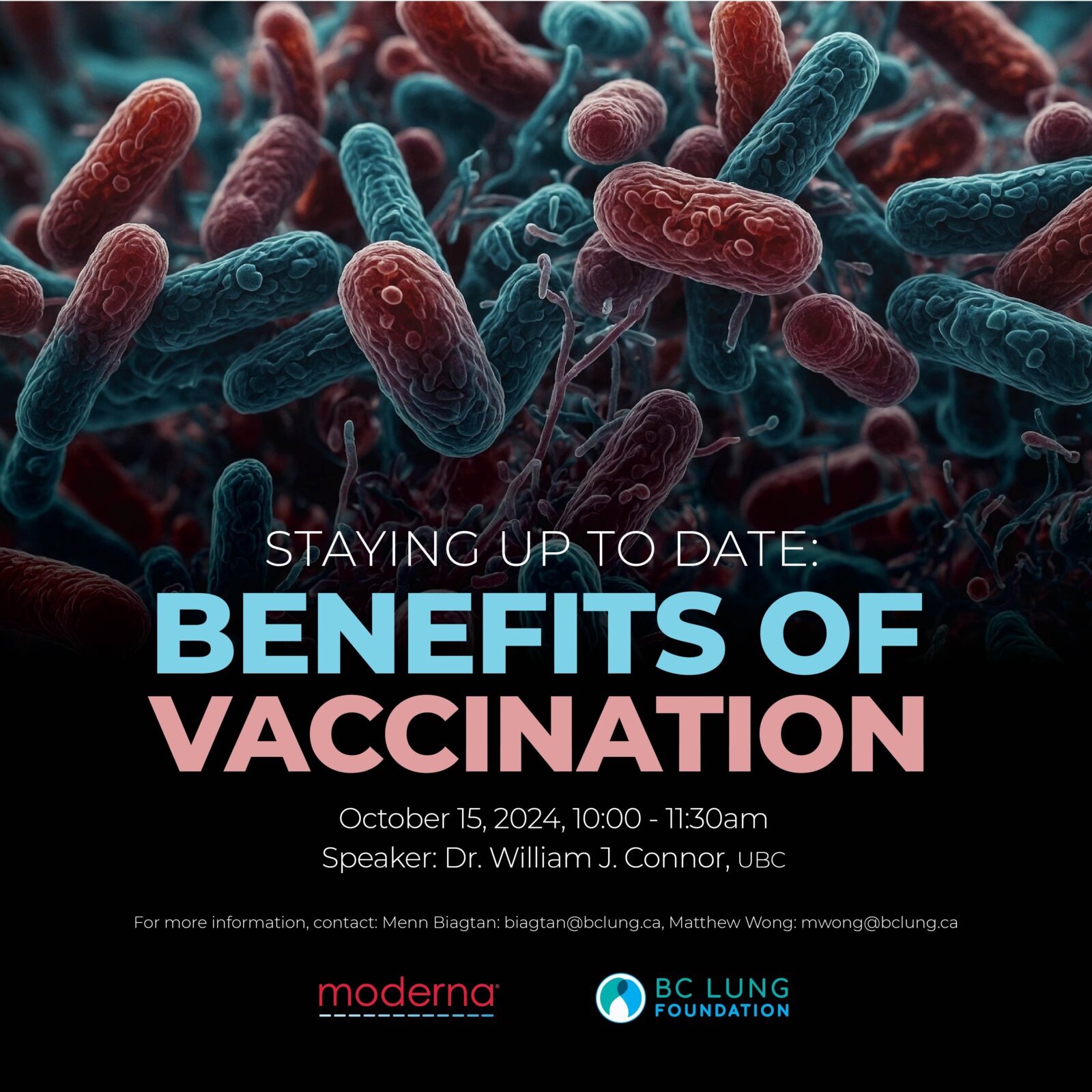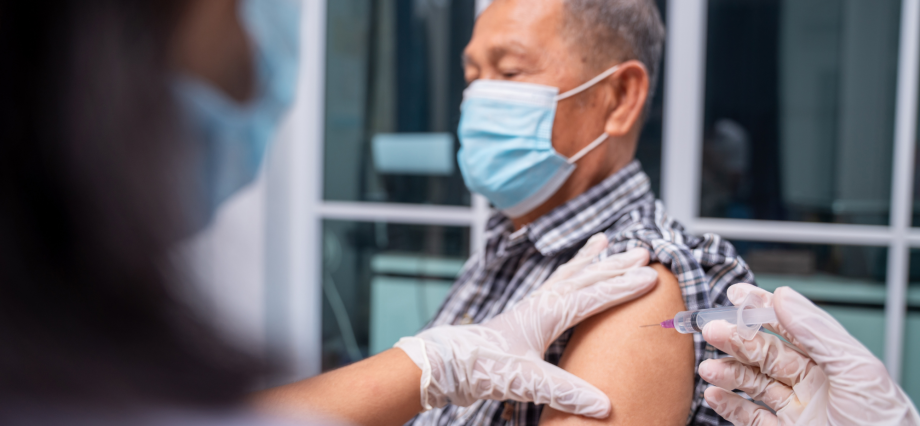Immunizations & Infections
Getting vaccinated is one of the most important things you can do to safeguard your lung health.

Why are vaccines so important?
We’re protected from infectious disease by our immune system, which destroys disease-causing germs – also known as pathogens – when they invade the body. If our immune system isn’t quick or strong enough to prevent pathogens taking hold, then we get ill. We use vaccines to stop this from happening.
A vaccine provides a controlled exposure to a pathogen, training and strengthening the immune system so it can fight that disease quickly and effectively in future. By imitating an infection, the vaccine protects us against the real thing.


Staying Up to Date: Benefits of Vaccination
Join us to hear the importance of staying up to date on vaccinations with guest speaker, Dr William J Connor from the University of British Columbia.
October 15, 2024

New Podcast Episodes!
How to stay safe during respiratory season
Be sure to check out BC Lung Foundations’ podcast: Airwaves & Airways for episodes 5 & 6, where we chat with Ajit Johal, Pharmacist and Clinical Director at Immunize.io about respiratory season, risk factors, and all things vaccinations so you can be up to date on what to expect this fall.
Vaccines are our most effective health intervention
They prevent an estimated 2–3 million deaths worldwide every year. But, a further 1.5 million lives could be saved annually with better global vaccine coverage.

What vaccines do for us:
Protect us from dangerous diseases.
In some regions or populations, dangerous diseases are constantly present (endemic) – but even in developed countries with accessible healthcare, vaccines are critical to stemming the spread of infectious disease such as measles.
Protect children and the elderly.
Our immune systems are strongest in adulthood, meaning that young children and the elderly are particularly susceptible to dangerous infections.
Protect the vulnerable.
If enough of a population is vaccinated, infections can’t spread from person to person, which means that everyone has a high level of protection – even those who don’t have immunity. This is known as herd protection (or herd immunity). It’s important because not everyone can be directly protected with vaccines – some people are unresponsive to them or have allergies or health conditions that prevent them from taking them.
Help us control epidemics.
In a world of denser cities, increased international travel, migration and ecological change, the ability of emerging infectious diseases to spread and cause devastation is increasing.
Help limit drug resistance.
Medicine relies on being able to treat infectious diseases with antimicrobial drugs, such as antibiotics, but overuse and misuse of these drugs is leading to infections becoming resistant to them.
Specific information for those living with a chronic lung condition:
People with chronic respiratory conditions are at higher risk for serious problems from certain vaccine-preventable diseases. BC Lung recommends those with chronic lung disorders, including people who smoke, receive a flu vaccine annually in addition to other routine immunization.
What vaccines do you need?
COVID-19 Vaccine
As information regarding the vaccine and its distribution is evolving, we ask that you visit the www.immunizebc.ca website for up to date information on COVID-19 vaccination.
Flu (influenza) Vaccine
Get vaccinated every year to protect against seasonal flu.
Pneumococcal (pneumonia) Vaccines
These vaccines protect against serious pneumococcal diseases. Some types of pneumococcal (bacterial pneumonia) infections are prevented with vaccination. People aged 65 and over only need a single pneumococcal vaccination. This vaccine is not given annually like the flu vaccine. People with a long-term health condition may need just a single one-off pneumococcal vaccination or vaccination every 5 years, depending on their underlying health problem.
Shingles Vaccine
This vaccine protects against shingles if you are 50 years or older. At this time, BC does not have a publicly-funded shingles vaccine program. However, the vaccine can be purchased at most pharmacies and travel clinics.
Tdap Vaccine
This vaccine protects against tetanus, diphtheria, and pertussis (whooping cough). To read more about who should receive this vaccine, click here.

